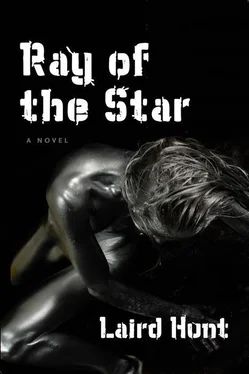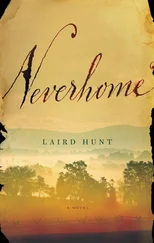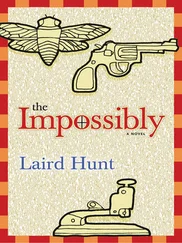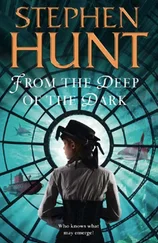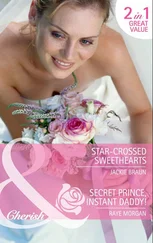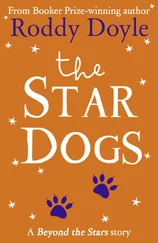Cheeks burning as he hurried away, Harry reminded himself that, in his defense, he had stumbled upon the silver angel by accident, and that while it was true that this accident had occurred in the context of his attempts to locate her, it was still an accident, that could not be disputed, or could it? hmmm …: he had been looking for her and had found her, and hadn’t his method been more or less to stagger around the city until their paths crossed again? and hadn’t that been what had happened? it had, but, still, in what sense had he, actually, been looking for her? wasn’t he mistaking what had been reduced to rather a wan hope, one stripped of all but the most desultory agency, with active engagement? wouldn’t any outside, so-called impartial observer briefed on the situation exclaim, “but you weren’t looking for her, you were just flopping around, you may have been thinking about her in some abstract way as you went out, but that’s pretty far from constituting a search”? but what constitutes a search? Harry wondered, what is the cut-off point? the point beyond which the activity ceases to be what we have mistaken it for? once, over coffee, a well-meaning friend had put her hand on his shoulder and said, “what are you doing? that was years ago, years and years …” and he had taken a sip of his coffee and said, “I’m searching”—in much the same tone, he realized as he passed a pair of living tree statues, fairly nice ones, that he had used in making his comment to the pigeon about beginning his “assault on life” and his comment to the man under the awning about the number of hurdles life lines up before you — but what, exactly, had he meant by that? had he been describing an open-ended engagement, one that, perhaps, continued even now? this seemed plausible, and rather interesting, insofar as said search could be seen as an umbrella for the search he had or had not been conducting for the woman he had or had not found, but which was it? had he, in this subsidiary instance, been searching or hadn’t he? could he, in other words, fairly attribute a portion of his boorish behavior in front of the angel to his astonishment at having found — rather than stumbled across — her? and what (the fuck, he thought) was the difference? it was hard to say, which was the way so many of his arguments with himself ended: in depressing stalemates, he far and away preferred losing to himself, as at least in those instances he achieved some approximation of clarity, and clarity, even the false variety, was inarguably something, etc., Harry thought, and as he did so, moving all the way down the long avenue and toward the water, the handsome woman, the woman with paint on her face, the silver angel — whose name, it is time for her to have one, was Solange — stood on her box, and thought not about Harry, whom she had barely noticed and had quickly forgotten, but about a path lit by star- and moonlight, one she had heard the dead were obliged to travel before leaving this sphere, and that for some was very long and for others very short, and she wanted to know which, in the case of her lost one, it was, and not knowing was troubling her and preventing her, and her lost one, she suspected, from moving on, which was why when, a week ago, after she had found the little salmon-colored slip of paper on the subway platform that guaranteed answers to “insoluble questions,” she had telephoned the number given and had been told to wait at the café where we first encountered her and where Ireneo made his mistake.
For his part, Ireneo, who had quickly shrugged off any sense of guilt about having brought Harry along to the “answer session” at his employer’s apartment, due to the inherent, not to mention typical, vagaries of his brief—“Bring me the one with the broken face”—had in fact been tasked with finding the woman, but quickly realizing what to Harry would seem so problematic — that only serendipity would bring him back into contact with her, who in arranging to be present at the café at the given hour had communicated neither name nor number — he had done exactly nothing besides keep his turquoise eyes open as he went about his business, which in the vicinity of the moment we have lately been considering, had him lighting candles for the dead at a church no more than a quarter mile away from where Solange stood unhappy, unmoving, on her silver box, and less than that from the living tree statues that Harry passed on his way down the boulevard, a relative proximity that all three of them, had they known, would in the light of their later association have found bracing, Ireneo no less than Harry and Solange, still, what is most pertinent at the moment is that among the seventeen red candles Ireneo had been tasked with lighting by his employer Doña Eulalia — the old woman who had spoken to Harry while intending to speak to Solange — three related to the former and one to the latter, and as soon as they were lit, this very Doña Eulalia, who was sitting quite some distance away on a small red sofa by the window of her bedroom, felt a sharp urge to sit up straight and take a deep breath and insert a mint-lemon drop into her mouth, only the last of which she did, while thinking, “I should have spoken to him while he was here, and now where is he, and more importantly, who are they? for even though something had come across authoritatively enough to her in the days following Harry’s unexpected appearance for her to expand the list of souls she was actively tracking, she didn’t know who the candles that corresponded to Harry were, any more than she knew who the single candle was that corresponded to Solange, though there were things of course that she could say about them: saying things, however imprecise, about the souls corresponding to the candles she was forever sending Ireneo off to light was her business, though there were times — like now as she sat on the sofa sucking on her mint-lemon drop wishing she could tell Ireneo where, for example, to find both Harry and Solange, which would simplify things considerably — she wished she were better at it,
“I wish I were better at it,” she said aloud,
“But I’m not and to bloody hell with it,” she added,
a sentiment she softened by appending an “ah well,” which turned out to be one of those moments of synchronicity that, in the so-called grand scheme of things, are far more common than we suspect and than we may soon choose to believe, for at precisely the moment she emitted her “ah well,” Ireneo in front of his candles, Solange (though she said it silently) on her silver box and Harry who was just stepping onto the beach, said “ah well” along with her, and their reasons for saying it were not so terribly different.
That morning, on his way out to search or wander, whichever, Harry had stopped off in a bookstore, browsed a few minutes, then, without thinking much about it, had purchased a slender red volume in a language he no longer knew terribly well, had slipped it, still in its crisp paper bag, into the pocket of his brown velvet jacket, where he could feel it pressing lightly against his ribs, then pulled it out again and read some of it in a sprawling bed of daffodils outside one of the museums he would later visit — and where he would have such a strange time with the explanatory notice — the story, as best he could parse it, of a man who sometime in the middle ages, when Christianity has ostensibly swept Europe clean of its shadows, encounters the Greek god Pan, now much reduced and mud-covered, in the salty marshes of the South of France, but who appears to him, even “so long after he might most fully have mattered,” like some “dread avatar of forgotten impulses,” and now, just after joining Solange, Ireneo, and Doña Eulalia in half-murmuring, “ah well,” Harry sat down on the crowded — it was a lovely afternoon with just the lightest bit of breeze and a glorious warmth to the sand — beach, spent a few moments looking out through the fat palm trees over the gaily colored umbrellas to the ship-speckled horizon and the deep seam where sky and sea did their endless, distant dance, a place his father had long ago convinced him was full of wonders — ships made out of water, fish made out of air, only, of course, try as you might, you could never get there, and although his father might well have used this evocation as the basis for a paternal lesson in the unattainable aspects of life, he never had, for which Harry found himself suddenly quite grateful: what a load of crap such lessons were: life always had the upper hand, no matter how many little stories you told yourself about it — then pulled the book out of his pocket, opened it, found his visual aphasia had again returned, but, this time, along with it, a sense that some forgotten impulse he had been harboring, along with his heart, in the pit of his stomach, was staggering out into the light — perhaps set free, in the first instance, by the change of locale, and, in the second, by a combination of the acupuncture treatment, the purchase of the bell, the adventure with Ireneo, and the conversation with the man under the awning, not to mention the stunning particularities of the silver angel herself — and would emerge at any moment, after all these years, and that he should be prepared to step forward, for better or worse, along with it, which thought made him feel giddy and jaunty — like the character in the movie he had imagined — but also completely terrified — what tack to take? — so that after staring a moment longer into the deep seam of the horizon and imagining he was on the verge of reaching that impossible place where he could float alongside hybrid marvels of sky and sea, or at least dream up some way to inoffensively approach the silver angel, some way that wouldn’t result in his instant and definitive dismissal, he ran back home, closed the shutters, and jumped into bed.
Читать дальше
